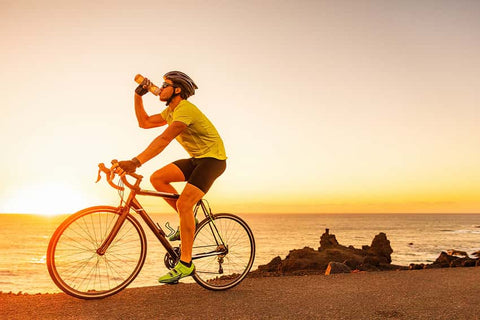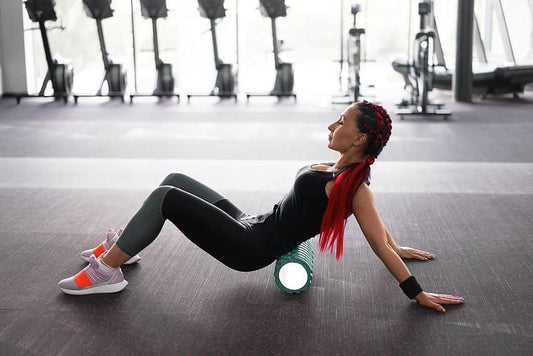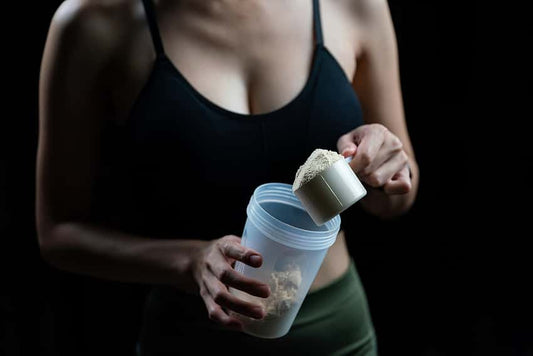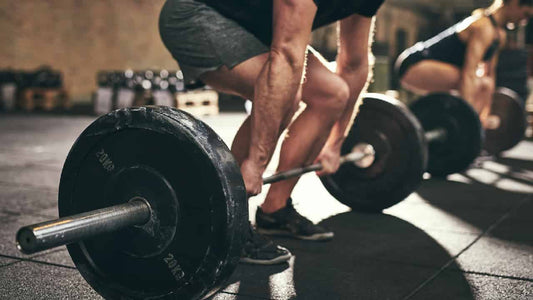Supplements for cycling can be a touchy area. Without naming names, cycling hasn’t had the best reputation with performance-enhancing products.
Many cyclists are confused as to which supplements could provide real benefits, which could land them with a doping charge, or which just straight-out do not work.
If you search “supplements for cycling”, you’ll be led down a path of legit products, illegal products, and outright nonsense products. In this article, we’re going to show you the best, scientifically backed, supplements for cycling available on the market!
The Power of Marketing
Before we get into products that can actually provide you with legal, performance-enhancing effects, let’s first just clarify a few things when it comes to buying supplements.
Marketing plays a HUGE role in the sales of supplements. If marketed correctly, we’ll probably all be convinced by their bold claims. In 2020, the global dietary supplements market size was USD 61.20 billion! No wonder companies will do anything to sell you a placebo product.
There are many things you could look out for when buying supplements, but the main points are to make sure they’re research-backed and check they’re made with legal ingredients.
Top 5 Supplements for Cycling
Supplements can provide improvements to your health and performance, two factors critical for success in cycling.
Here are our top 5 research-backed, safe supplements currently available on the market. For each supplement, we’ll be looking at what each supplement does, dosage recommendations, and when’s the best time to take it.
1) Whey Protein
What Does It Do?
Protein is used to build and maintain muscle mass. It's made of small building blocks called amino acids. Certain amino acids, known as branched-chain amino acids (BCAA’s), contribute to muscle growth stimulation.
To ensure we’re properly recovering from the muscular demands of cycling, we need enough protein and BCAA’s. Fortunately, whey protein has both.
How Much Should I Take?
For active adults, consuming 1.4-2g per kg body mass is advised. To take this further, break down your daily total into individual meals. 0.4g per kg body mass per meal will maximize protein synthesis.
When Should I Take It?
Protein is best consumed at regular intervals throughout the day. The body is constantly breaking down protein, therefore we need to regularly provide protein doses.
Every 4 hours or so is most appropriate. Don’t worry about consuming protein as soon as you're off the bike, as long as it’s within that 4-hour window, you’ll be fine.
2) Creatine
What Does It Do?
Creatine increases energy production during high-intensity training. In cycling, this would be our sprints and hill climbs. More energy leads to greater power output. Essentially, creatine helps us sprint a little longer, or keeps the legs turning on those big climbs.
How Much Should I Take?
You may have heard of the creatine loading phase? Put simply, research suggests a higher dose of creatine should be taken for 5 to 7 days before reducing to a maintenance dose. Take 0.3g per kg body mass for 5 to 7 days, then consume 0.03g per kg body mass indefinitely.
When Should I Take It?
You can take creatine whenever you want. Just keep in mind it isn’t the most palatable of supplements. We suggest adding creatine to your shake or smoothie to make it easier to get down.
3) Carbohydrates
What Does It Do?
Carbohydrates are the bodies go-to source of energy. Arguably, we can use protein and fat as energy too, but the pathways are more complex and take longer to use. Carbohydrates allow us to work for longer at a higher work capacity. Sounds pretty appealing to a cyclist!
How Much Should I Take?
The dose depends on the length of your ride. Your body can only store a limited quantity of carbohydrates. This usually equates to 90-120 mins of exercise. If your ride's over 90 mins, consume 60-90g of carbohydrates per hour of exercise. It’s also recommended you consume 7-12g of carbohydrates per kg body mass 24 hours before your ride.
When Should I Take It?
When you should consume carbohydrates depends on your goal. Ideally, you’ll want to consume carbohydrates before, after, and during your ride.
4) Caffeine
What Does It Do?
We’re all familiar with the post-coffee pick me up, right? The reason we feel more awake and alert is due to a little stimulant called caffeine.
Caffeine blocks our relaxation receptors so we don’t feel so fatigued. So really, it doesn’t make us more energized, it just stops us from getting tired. As cyclists, the last thing we want to feel on a long ride is fatigue.
How Much Should I Take?
Consuming 3-6mg per kg body mass has been shown to improve exercise performance.
When Should I Take It?
It’s best to take caffeine 40-60 minutes before your ride. Aim to save it for when you really need it. If we use caffeine regularly, we risk building up a dose tolerance, thus not maximizing its benefits with each use.
5) Multivitamins
What Does It Do?
Vitamins are needed to help the body perform many essential physiological processes. Essentially, without vitamins, we wouldn’t be able to live.
Granted, it doesn’t usually come to that, but vitamin deficiencies do make life a lot harder. If we have deficiencies, we’ll be living in sub-optimal conditions. For cycling performance, we want our bodies to be in the best physical health so we can perform well.
How Much Should I Take?
Recommended daily values will differ between specific vitamins. We recommend taking a multivitamin as this will contribute some, if not all, of the vitamins recommended daily value.
When Should I Take It?
Timing isn’t particularly important with multivitamins. However, consuming it at the same time each day can help you get into a good routine, that way you’re never missing it. Taking a multivitamin with breakfast is one of the most popular choices.
Recommended Supplements
There are many supplement companies on the market, but here are some of our top picks!
Performance Lab Recover
Performance Lab Recover is a blended mix of carbohydrates and protein to maximize recovery after your workouts.
Performance Lab NutriGenesis Multi
Performance Lab NutriGenesis Multi, a specific multivitamin for males and females ensures each individual gets the right nutrients for their unique processes.
Performance Lab Caffeine 2
Performance Lab Caffeine 2 is an all-natural caffeine supplement designed to peak energy levels without any nasty side effects.
Conclusion
As their name suggests, supplements can be a great addition to a solid exercise and nutrition plan. Unfortunately, not all supplements live up to their expansive claims.
If you’re new to the world of supplements, you can’t really go wrong with whey protein, creatine, carbohydrates, caffeine, and multivitamins. If you’re looking for those marginal gain supplements, just ensure you’re doing your research before buying into them!















